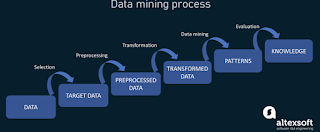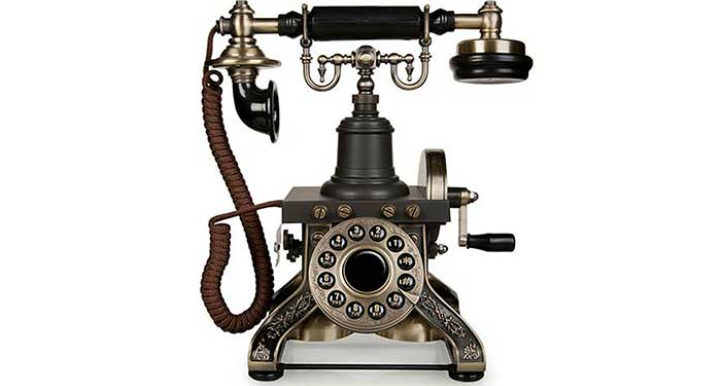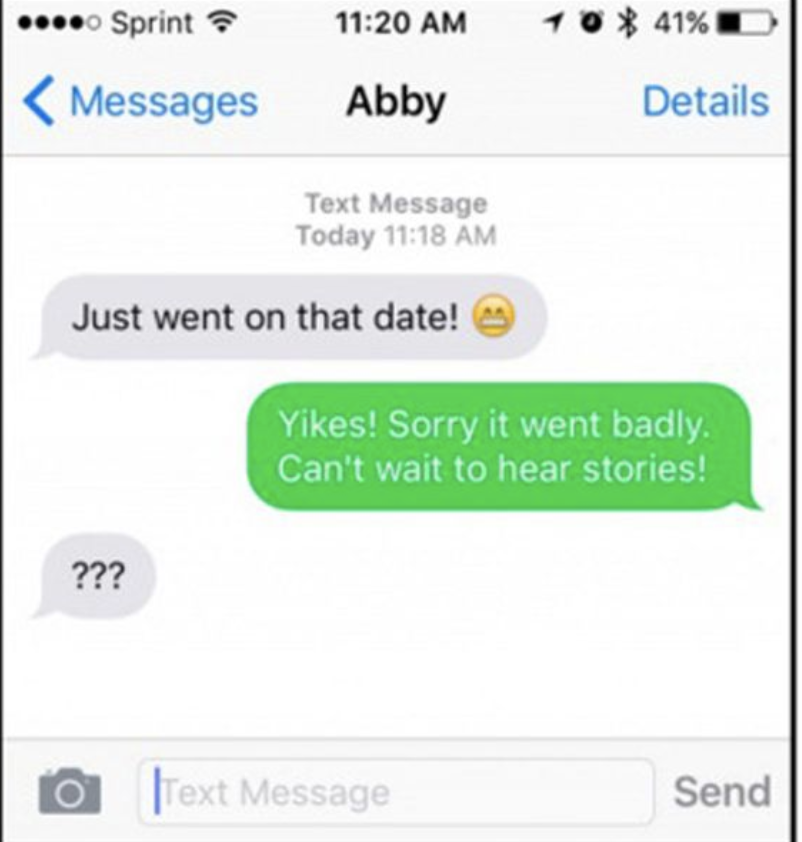Monday, February 21, 2022
EOTO #2
Wednesday, February 16, 2022
Diffusion of Innovation
The diffusion of innovation theory helps define how ideas and innovations spread throughout time.
Using that theory we can assess how emojis spread over time. At first, were the premieres, the group that came up with the idea in the first place, a group of Carnegie Mellon researchers. The idea was used around a small group of brave individuals willing to start and run with something new. Then came the early adapter companies, in Japan and East Asia begin to jump on board with the new idea and implement it into their standard programming. After that other companies tried to adapt emojis into their programming also because it was popular in other cultures.Next, we move on to the late adopters, which basically are those who were resistant to innovation and change into their standard phones systems to incorporate emojis. Finally, we have the laggards those who are resistant to change and who do not adapt to the new technology. Not everyone always adapts to new technology and some never will.
Based on the timeline of the diffusions of innovations I predict that emojis have now reached saturation into the market of online messaging. They now are normalized characters that we constantly use daily. I do not think they will leave our phones anytime soon and be replaced by another technology, however; I do think that there will be changes and elements added to them. Emojis are almost a necessity for phone messaging, since they are seen as necessary, they will not be deemed obsolete.
Monday, February 14, 2022
Vertical Integration
companies. Now Netflix has bought some producers and has created their own movies which have been very successful because they already have such a large subscriber base.
Thursday, February 10, 2022
No Such Thing as Privacy
So what is a digital footprint, basically everything you post or do online leaves a digital footprint. There as some different ways to leave them the most notable and widely spread are cookies. Cookies collect your data and sell that data to other companies, so now instead of one website having your information countless companies now use it. The above information is called an Adhesion Contract which is where one party holds all the power, the online companies own everything you post.
So what are the positives about this no online privacy? Well, one positive is marketing efficiency. Now because of everyone's information being filtered into a digital dossier marketing companies can now advertise the specific products to niche markets and be successful, instead of mass marketing which loses profit and is inefficient. This marketing technique pleases some people because it makes their lives simpler because it makes their shopping easier. Another pro could be that the collection of mass data and surveillance makes it easier to find and prosecute criminals.
So what online protection do we have? Online privacy is a difficult subject because of the third-party doctrine. This doctrine states when the first party voluntarily gives information to a second party the first party relinquishes all control of downstream uses by a third party. This law means that if you give someone your information even if it is done in confidence it loses all constitutional protections.
So how can we improve our online protection legally? First, try to be aware that everything you post or don't post will be public, and keeping that in mind will help correct certain actions, however, some things are inevitable. One way we can combat the inevitable and protect ourselves is through legal protection. This protection can take forms in various ways, we should make companies liable to be transparent about partnerships, sponsorers, and customers. Governments should not be allowed to store everyone's data and personal information, period.
-We are innocent until proven guilty.
Anti-War Hush
Dissent is to have an opinion that opposes the ideas of an official position. One of the most influential first amendment dissents was by Justice Holmes. He made known the ideas that had been swirling around by John Milton and John Stewart. They both were thought leaders in need of an open marketplace of ideas. Justice Homles dissent is the first major statement on what the first amendment should be used for and how it should protect. In his dissent, he talks about we want freedom of speech so everyone can share their ideas good and bad, so individuals by their own judgment can seek the truth. If someone has an idea that goes against the media of the government the idea should be allowed to be spoken so that way if it is untruth the individual will be made to look foolish, and if it's the truth others can benefit. It is essential for everyone to be able to share ideas, most importantly when they may be different than the government officials. The idea of the open marketplace is one of the most important tools the supreme court uses to decide on first amendment cases.
This idea of dissent is extremely important when we refer to the sedition act of 1918, in which people were fined and imprisoned for speaking against the government in a time of war. The idea behind this is jingoism, it is an extreme nationalism in the form of aggressive foreign policy. This idea puts thoughts of war as a must to protect a country's supposed best interest. It is in my opinion, like that of the great Socrates "that all wars are fought for of money". All wars should have been avoided and can be avoided.
When there is a problem we want as many ideas and thoughts as we can get to find the best solution. Being Anti-War is not being Anti-America. there are many reasons people have Anti-war beliefs, some may stem from trying to preserve life, others may be from an entirely different point of view like those supporting socialism. Regardless of the case, there should be a freedom to express ideas to filter through to find the truth.
The sedition act of 1918 was repealed in 1920 though many of its ideas still linger in our legislation. Preceding the sedition act was the espionage act of 1917 which was passed two months after America joined WWII. This act was left intact, however over the years it has been amended. One of the most notable parts of the act, determined by president Wilson, was that written materials noted to be dissent about the war should be reported by the postmasters to the government. The espionage act of today has been mainly used against government officials.
Today not much has changed when it comes to the suppression of Anti-war voices all that is different are just the outlets that help suppress those voices. Now, various media outlets like Facebook, Twitter, Google have been censoring Anti-war voices. A most recent example is the current Ukraine/Russian conflict. It will be interesting to see how everything plays out, in the most optimistic outlook the US would not meddle in other countries politics, however, when has the government ever done that?
EOTO Presentations
A few new things I learned from the various presentations I found interesting are as follows: the first text message was actually sent using SMS from a phone in the UK. I found the use of pagers particularly interesting, they were actually first used by the police and then adapted by hospital management. The reason they because so popular in emergency care is that they can be used in dead zones and all the messages on a mass page are sent and received at the same time. I found that particularly interesting because two different iPhones can send messages now and even though the quality of the phones might be identical they might send text messages at slightly different times because of connection strength. Also, connection to wi-fi or data is a must because without that they are almost useless. Pagers can send messages in dead zones which I think is fasinating.
Saturday, February 5, 2022
Breakthrough Tech
History has proven that some of the smallest ideas have led to the largest inventions that are used daily. Sometimes we don't even realize that our tiny ideas have such a large snowball fact. For example, take safety glass, safety Glass was actually discovered in 1903 by a spillage accident and is used every day to prevent countless deaths and injuries. We don't stop to think about how it was invented we just appreciate its existence.
Or take one of the most common antibacterials, penicillin, also an accident. A forgotten about petri dish led to the discovery of one of the most commonly used antibiotics. Sometimes the need to cure a small problem will lead to the invention of a new solution to a larger problem. Take the invention of the stethoscope. The scope was invented to hear the heartbeat of someone who had a large mass on their chest. It was a short-term solution, now it is found on the neck of every doctor in every hospital across the world.
Similar to the other inventions is the invention of the emoji. This might sound silly since we use it in almost every conversation on our smartphones. The invention of the emoji happened by accident. A group of bored Carnegie Mellon researchers wanted a way to communicate with each other without having others know their inside jokes. And so was born the emoji, common programming within each of their software so they could all receive and send art-filled expressions. This was later adopted by the Japanese creating a more fleshed-out version based on Magna Art. After then it took off in a lot of Asian cultures programming. Then they began to get the attention of big companies like Google and Apple, the implementation of emojis into the Unicode Standard cemented they were here to stay.
Soon after the big names implemented emojis into their programming, everyone in the world was using them daily. It all started because of a joke.
Sometimes we don't even realize how much they affect our communication, and then in turn our lives. Take this conversation below
Because of the emoji, one would assume that the date went bad because grinding of the teeth is normally associated with discomfort. However, based on people's personalities the uses and meanings of emojis can change, therefore, creating a totally different tone for the conversation. Imagine the emoji below instead of the teeth emoji.
A completely different tone is implicated.
Communication has changed a lot over the years thanks to emojis, in many ways it positively has affected society since they shorten the time it takes to send a message. In addition, it adds value by letting the recipient know the tone of the conversation and the overall mood. Companies have found that sending messages with emojis allows their customers to feel more connected. Emojis add great value to many conversations, however with great value also comes some disadvantages.
The disadvantages include stifling vocabulary, affecting formal communication, and possibly creating a communication gap. Emojis stifle vocabulary because they are conveniently implemented by the click of a button. Humans sometimes can be lazy creatures and will choose the convenient way. There is nothing necessarily wrong with this, however, vocabulary is the sacrifice. Instead of emojis people would have to write longer messages using complex adjectives to describe how they are feeling. Formal communication also takes a toll, emojis add a sense of ease and interpersonal connection. Most formal business communication venues do not have this element of friendliness. The objective is to get the job done in a formal respectful manner, sometimes since different cultures interpret emojis differently, the professional objective might not be represented. Lastly different generations are affected differently by emojis. Older generations have a harder time, in general, adapting to technology, emojis may complicate things even further.
In conclusion, a good rule of thumb is to think about the audience you're trying to reach when constructing text messages. Upon proper examination of the recipient one then can know what type of message to send, formal or informal, and whether or not to use emojis.
Chinese Language Project
你们好, 我想写这个一篇文章,所以你们可以学习我的汉语学习之旅。我也想要我的未来的雇主可以知道我的知识水平。我一先开始学习中文在中学。我觉得很有意思了,特别写汉字。我的同学说了太难。我听说以后,我觉度我想学中文,所以我可以证明他们是错的。 我学中文了四年了,二年在中学,二年在大...
-
The use of technology integration into society is represented by an exponential graph. The graph below shows the relationship between time ...
-
你们好, 我想写这个一篇文章,所以你们可以学习我的汉语学习之旅。我也想要我的未来的雇主可以知道我的知识水平。我一先开始学习中文在中学。我觉得很有意思了,特别写汉字。我的同学说了太难。我听说以后,我觉度我想学中文,所以我可以证明他们是错的。 我学中文了四年了,二年在中学,二年在大...
-
Have you ever heard of LIBOR ? That's ok if you haven't it's not a broadly talked about topic. The media has constantly suppres...















